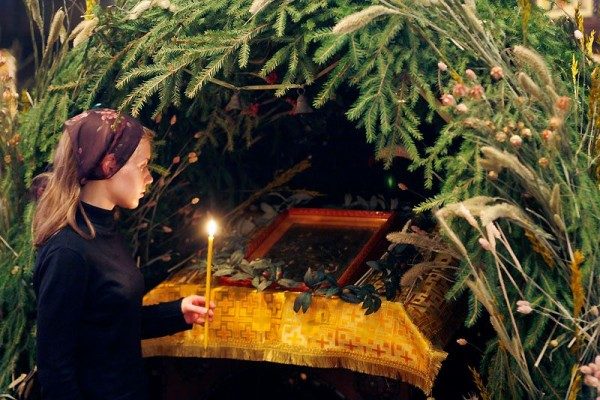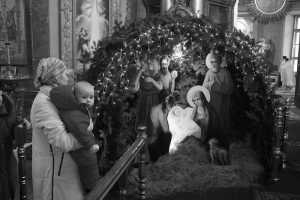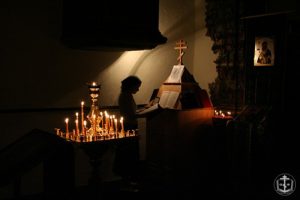It is not unusual to give thought to how we keep a fast. Will it be in a strict manner? How will my fasting be possible when I’m at work or at school? How will I teach my children to fast? When we ignore the Fast, we feel guilty and the need to confess. It is strange, however, that we do not give similar thought and time to what it means to keep the Feast. For fasting is about the Feast—not about the Fast. Everything is about the Feast!
Our popular culture has no difficulty keeping its feast of Christmas—and though we complain about how commercial the feast becomes—we live in a commercial culture. Our way of life and economy are grounded in consumerism. If we stop shopping, the nation will collapse (as a consumer nation).
Almost everything in our culture radiates from its consumerist existence. Even how we think of what it means to be human is driven by consumerism. Popular culture thinks of a human being as a center of consciousness with free will. It is a very simplified view of the human—but ideally suited for shopping. We think, we decide, therefore we shop!
Thus, the popular feast of Christmas is kept by doing a lot of what we do best—we shop. It is something of a redemption that at least an aspect of our shopping is buying things for others.
But the Orthodox understanding of the feast is not grounded in consumerism. We do not believe people were created to consume. We are created to commune.
We do not eat in order to live—we eat in order to be in communion with God. When we live rightly, everything we do is done in order to enjoy communion with God and with other human beings. Said quite simply—we exist in order to love.
We keep the feast of Christmas, not by consuming or affirming our place within the world of consumption—we keep the feast by entering more deeply into the life of communion—with God and with others.
We enter into communion with God through prayer and devotion and the keeping of His commandments. We enter into communion with others through forgiveness, acts of kindness and generosity. Communion often consumes things—we eat and drink Christ’s Body and Blood. But we do not eat His Body and Blood as though we were predators or as though His Body and Blood were objects to fill our bellies.
We eat and drink Christ’s Body and Blood in order to share in His life and in order to share our life with Him.
Our use of the things of this world with regard to others can become communion if we treat those things in the same way. If the things in our life are a means of sharing—both our own lives and in the lives of others—then they can become communion.
A gift, given and received as an act of sharing, and not simply an act of consumption, can quickly rise to the level of communion. There are gifts I have been given through the years whose value comes not from the market but from the giver and the “life” of the giver that is carried by the object. Such things in our lives bring remembrance and communion with every use.
We approach the feast of God’s greatest gift—His life incarnate in our world. God became man. In so doing He revealed our humanity as itself a great gift. The life of every human being bears the potential of communion with God. Every act of kindness, offered even to the “least of these,” is received as an act of communion with God Himself.
Keep the Feast with care this year!


















